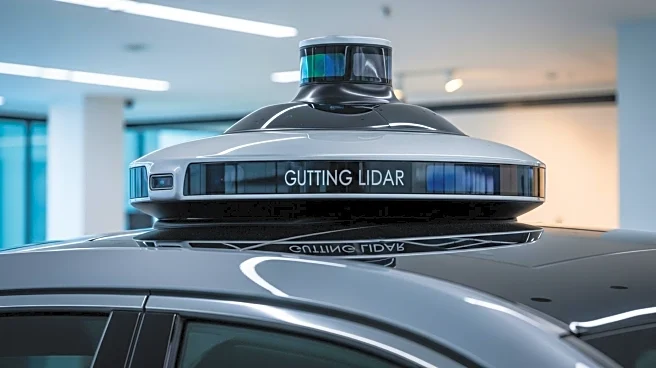What is the story about?
What's Happening?
Nissan is positioning itself as a serious contender in the autonomous vehicle market by focusing on reliability and situational awareness through the integration of lidar technology. Unlike Tesla, which relies solely on cameras and neural networks, Nissan plans to equip over 2.5 million vehicles with its ProPilot system by 2026 and make lidar standard across its lineup by the end of the decade. This approach aims to enhance safety and performance in unpredictable traffic conditions, setting Nissan apart from Tesla's faster, less regulated solutions.
Why It's Important?
Nissan's adoption of lidar technology represents a significant divergence in the approach to autonomous driving. By prioritizing safety and regulatory compliance, Nissan could gain consumer trust and potentially capture market share from Tesla. The use of lidar may also influence regulatory standards and public perception of autonomous vehicles. As the industry evolves, Nissan's strategy could set a benchmark for other automakers, impacting the competitive landscape and technological advancements in the autonomous vehicle sector.
What's Next?
Nissan's gradual rollout of lidar-equipped vehicles is expected to begin in the 2027-2028 fiscal year, with integration into the Nissan and Infiniti range. The company's cautious approach may yield better results in dense traffic conditions, potentially influencing regulatory frameworks and consumer adoption. As Nissan continues to develop its autonomous technology, the industry will be watching to see if its strategy proves successful and how it affects the broader market dynamics.















